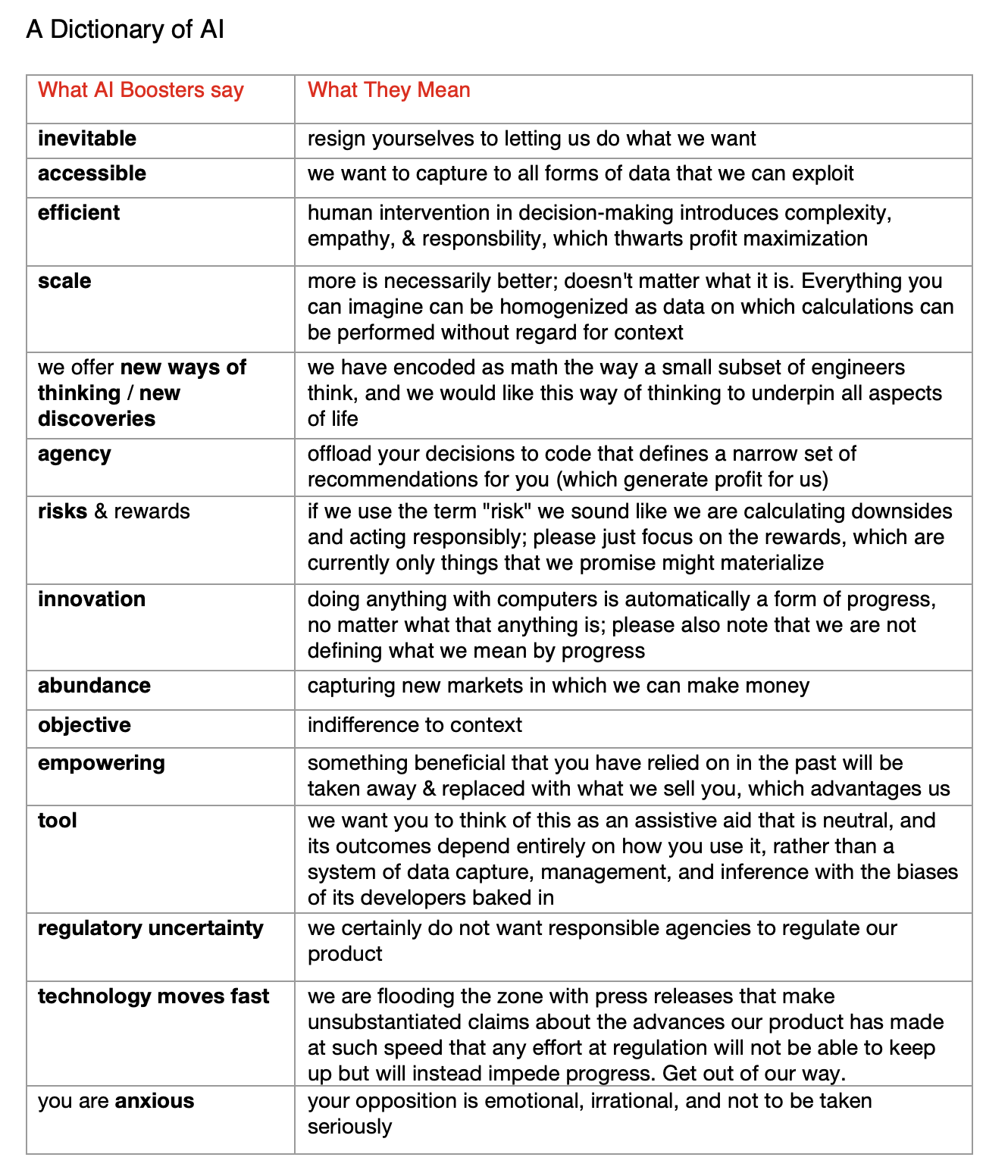Even if you spend just a small amount of time listening to people who believe that any kind of digital technology (whether that’s “artificial intelligence” or not) is an unquestioned good, you’ll hear a set of terms used to frame the conversation. Most of these terms have become a common part of public discourse, and they comprise a standard vocabulary of accepted values. Often, when they are invoked, no one feels the need to follow up by asking what is being promised. A now-classic example: say something is “democratizing.” When someone says that the internet is “democratizing,” few will ask what that actually means and how the internet can achieve it.
Four decades of scholarship, from Langdon Winner’s The Whale and the Reactor: A Search for Limits in an Age of High Technology (1986) to David Golumbia’s Cyberlibertarianism: The Right-wing Politics of Digital Technology (2024) have shown how powerful rhetoric is in paving the way for certain technological regimes to determine the shape of our lives: not technology itself, but the language used to frame how people think and talk about technology.
It seems like we could do with a small dictionary that defines how this common vocabulary is being used by the proponents of “artificial intelligence.” So here it is.
*Update: with thanks to Joseph Potts and Peter Tarras for their contributions, I’ve added “empowering” and “tool” to the dictionary (August 27, 2025).
**Update: with thanks to Brendan Greeley for his contribution of “regulatory uncertainty” and to Emily Bender for her post on Bluesky reminding us all of the canard about technology moving fast. And while I’m here, if you want more in your anti-AI arsenal, read Emily M. Bender and Alex Hanna’s excellent The AI Con: How to Fight Big Tech’s Hype and Create the Future We Want (2025) (August 28, 2025).
